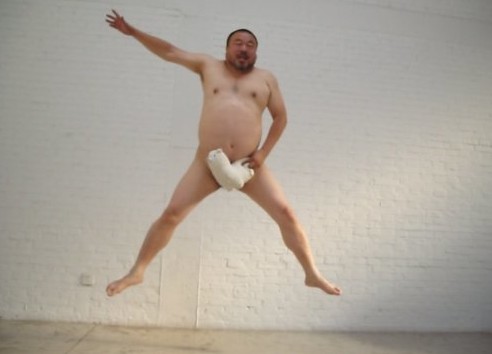I use to think that because of the efficacy of the tools we have created and are going to create, that the structure of surveillance couldn’t be dismantled no matter how much we wanted it to be. But a few years back I began to believe that most Americans wanted to watch and be watched, that we like the new abnormal more than we wanted to admit. The information titillated, the attention flattered. There are costs, however, for being on either side of the lens, and we’re all on both now. From Hans de Zwart’s Matter piece, “Ai Weiwei Is Living in Our Future“:
“After 81 days of staying in a cell he was released and could return to his home and studio in Beijing. His freedom was very limited: they took away his passport, put him under house arrest, forbid him to talk with journalists about his arrest, forced him to stop using social media and put up camera’s all around his house.
Andreas Johnsen, a Danish filmmaker, has made a fantastic documentary about the first year of house arrest.
A fascinating element of the documentary is that you can see Ai Weiwei constantly experimenting with coping strategies for when you are under permanent surveillance. At some point, for example, he decided to put up four cameras inside his house and livestream his life to the Internet. This made the authorities very nervous and within a few days the ‘WeiWeiCam’ was taken offline.
Close to his house there is a parking lot where Ai Weiwei regularly catches some fresh air and walks in circles to stay in shape. He knows he is being watched and is constantly on the lookout for the people watching him. In a very funny scene he sees two undercover policemen observing him from a terrace on the first floor of a restaurant. He rushes into the restaurant and climbs the stairs. He stands next to the table that seats the agents, who at this point try and hide their tele-lensed cameras and look very uncomfortable. Ai Weiwei turns to the camera and says: ‘If you had to keep a watch on me, wouldn’t this be the ideal spot?’
This scene shows how being responsible for watching somebody isn’t a pleasant job at all.”

